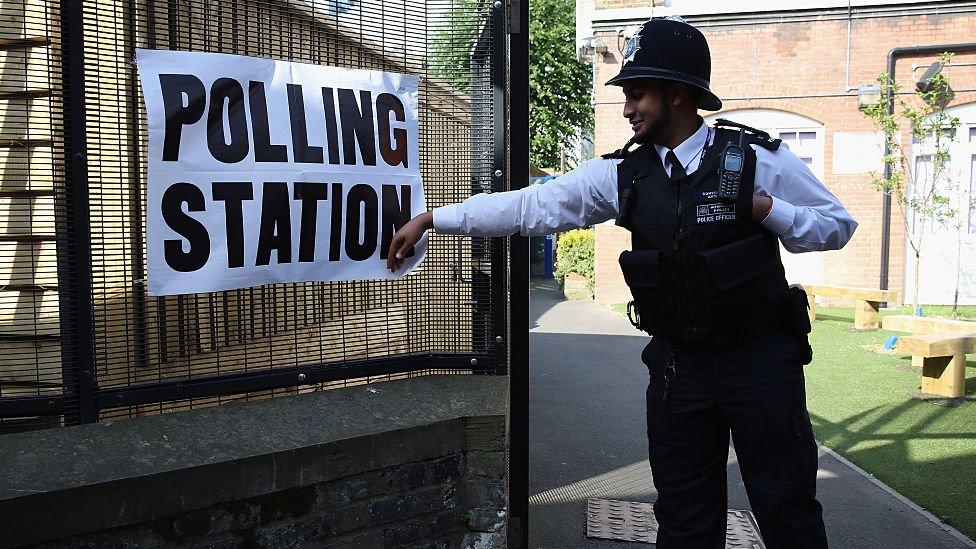General election 2019: Will the 'youthquake' be more of a tremor?
- Published
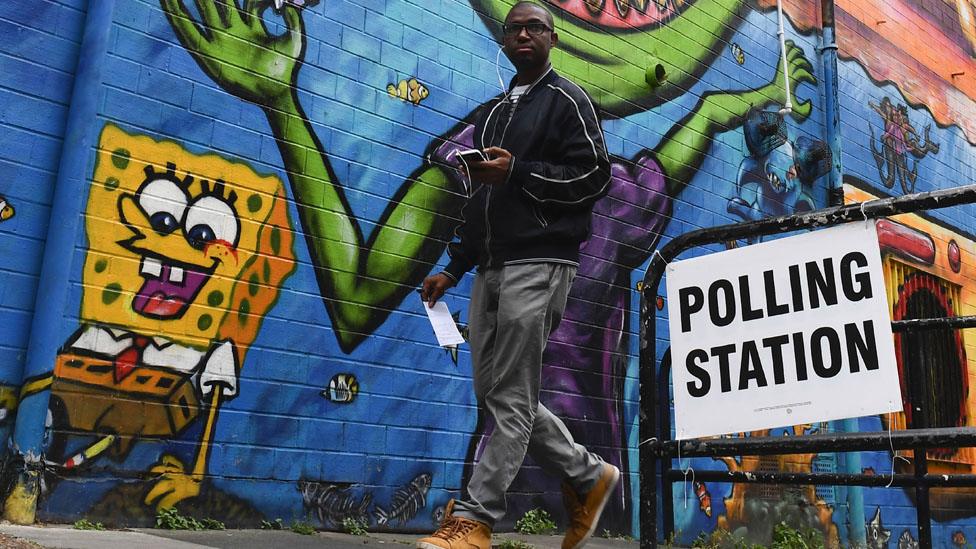
More than 270,000 people under 35 registered to vote in the first few days since MPs agreed to hold a general election.
Currently, they count for the majority of all new voter registrations.
Some politicians will be hoping - or fearing - that this could be the start of a so-called "youthquake" of young voters becoming turned on by politics, and potentially disrupting the electoral playing field.
But it might not be quite so simple.
Voter surge?
On Tuesday 29 October, it became clear that MPs were going to grant the Prime Minister the early election he has pushed for.
As a result, there was an immediate increase in people registering to vote.
There were 425,000 applications over the three days leading up to 31 October.
This was largely driven by younger people - of those who registered 274,000 were aged between 18 and 34 years old.
In comparison, in the three days after an election was called in 2017, there were only 296,000 new registrations.
And 203,000 of those were from voters aged under-35.
So it seems fair to say that more young people have registered to vote in the first few days this time around.
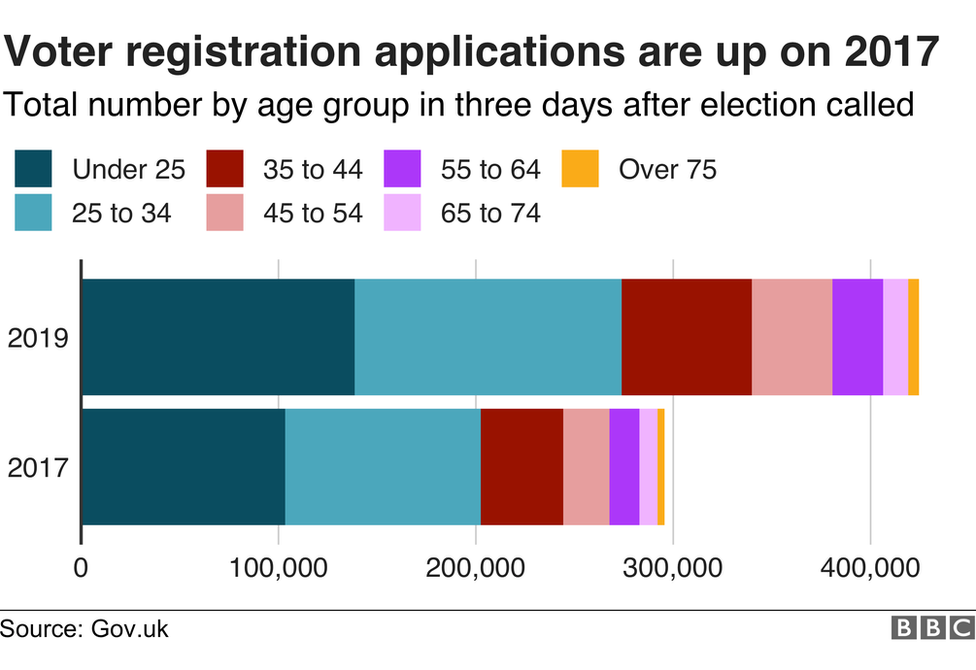
Dig deeper though, and it's not so clear that this does add up to a potential 2019 festive youthquake.
The increase in applications is not just explained by politically engaged millennials. In fact, the proportion of young people registering has dipped very slightly.
In 2017, 68.5% of registrations in those first few days were voters under-35.
This time around, it's actually 64.5%.
So really, all we can accurately say, is that more people are registering to vote, more quickly now.
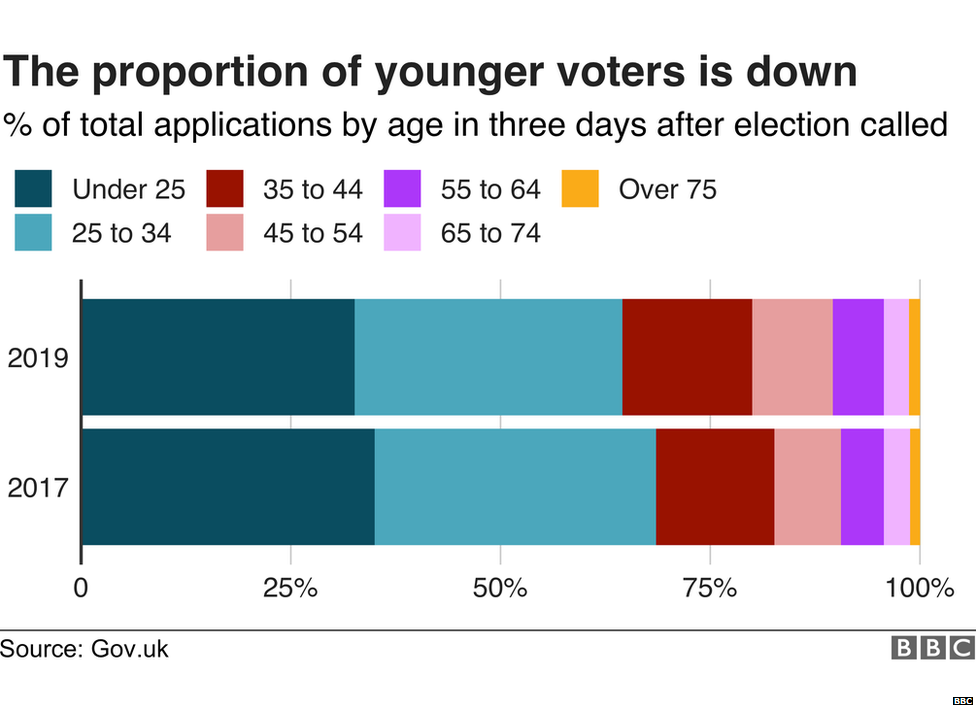
It makes sense too, that more young people will need to register than other age groups.
In the UK, everyone who wants to take part in an election has to register to vote - it doesn't happen automatically.
The final date to do it before this election is 26 November.
In October, the Electoral Reform Society suggested that more than 9 million people , externalcould be missing from the electoral roll.
Younger voters, anyone who has moved house recently, and renters are less likely to be on the the list of registered voters.
The Electoral Commission says only 71% of 18-34 year olds are correctly registered.
So it makes some sense that when an election is called, the majority of new registrations will be younger voters.
This isn't the first we've heard of a youthquake
It was actually the Oxford English Dictionary's word of the year in 2017.
The Conservatives lost their majority, Labour did better than expected and some people put it all down to our old friend, the youthquake.
The theory was that young voters liked Labour leader, Jeremy Corbyn.
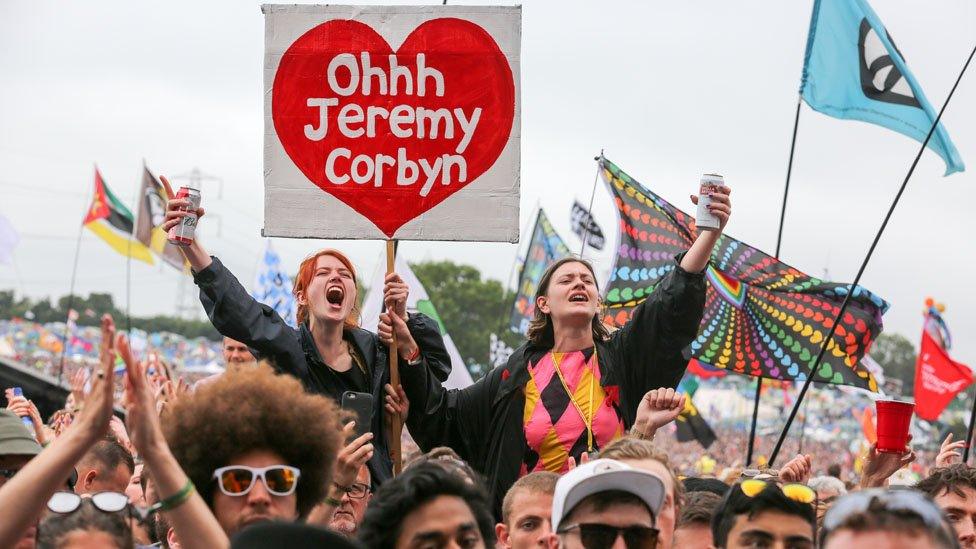
That summer, he was even serenaded on the Pyramid Stage at Glastonbury to chants of "Oh, Jeremy Corbyn".
After the election, there was a figure flying around social media that 72% of 18-25 year olds turned out to vote.
Even MPs like Labour's David Lammy tweeted about it.
Allow X content?
This article contains content provided by X. We ask for your permission before anything is loaded, as they may be using cookies and other technologies. You may want to read X’s cookie policy, external and privacy policy, external before accepting. To view this content choose ‘accept and continue’.
But nobody ever managed to back that up with actual facts.
A general election is a secret ballot, so there is no definitive way to find out how or if different age groups voted.
We can only rely on opinion polls, far from an exact science.
The British Election Study is widely respected - and its data suggests that what happened in 2017 was not a quake of any kind.
It says the turnout for youngest voters in 2017 was between 40% and 50% - about the same as the previous election in 2015.
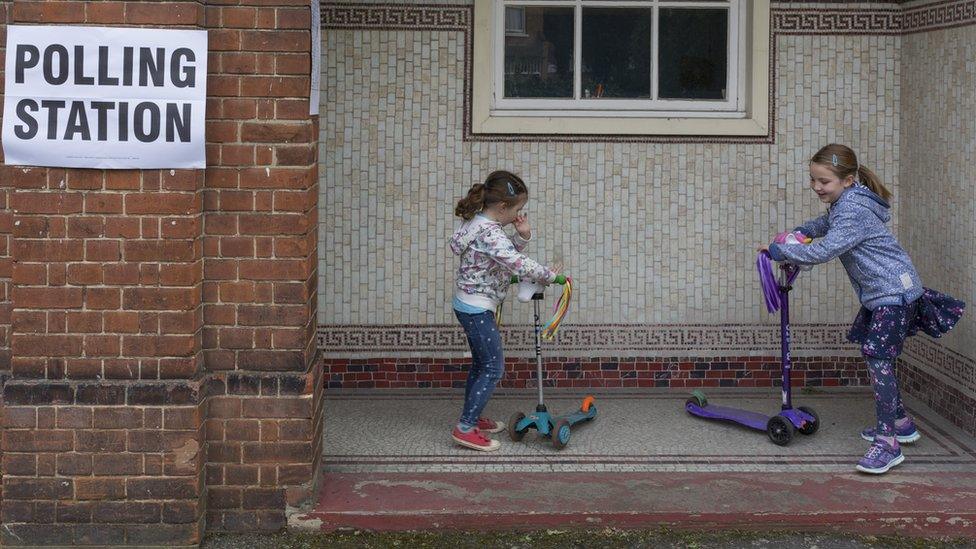
Politics fans are getting younger and younger....
Other polls disagree though.
YouGov found that about 58% of people between the age of 18 and 24 voted, while Ipsos Mori estimated that it was 54%.
The truth is, it is just not possible to say with absolute certainty if 2017 was a tremor or a quake.
And the same will be true in December.


Follow Newsbeat on Instagram, external, Facebook, external, Twitter, external and YouTube, external.
Listen to Newsbeat live at 12:45 and 17:45 weekdays - or listen back here.
- Published29 January 2018
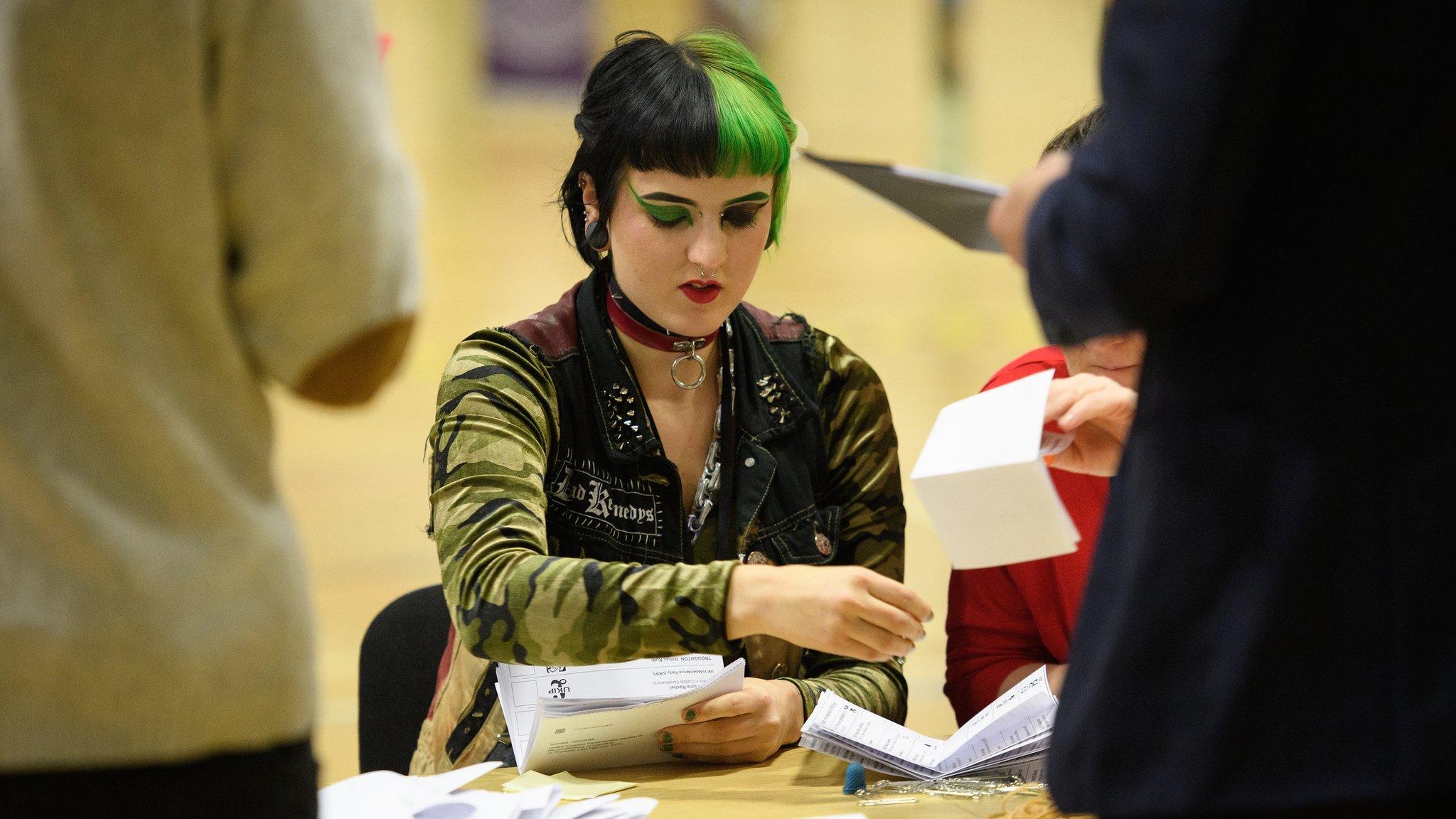
- Published27 November 2019
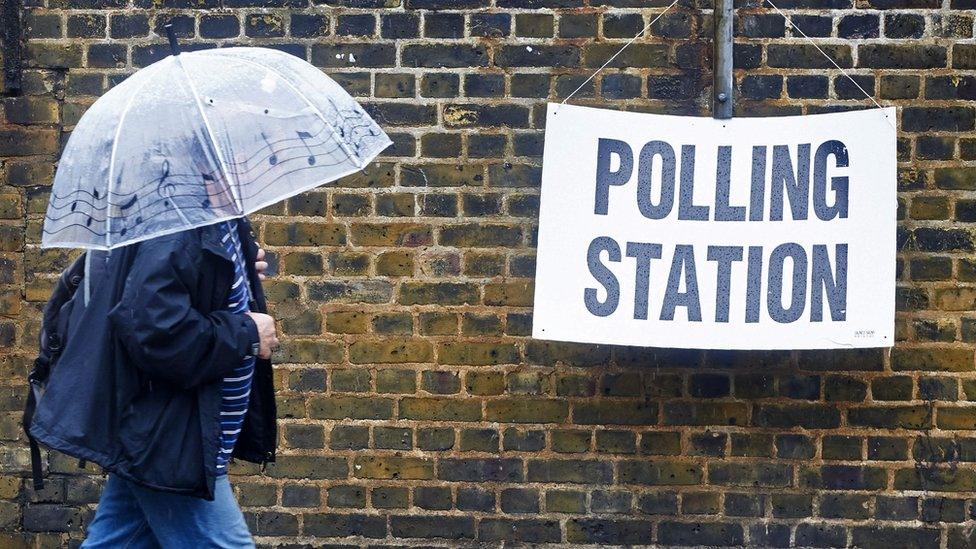
- Published29 October 2019
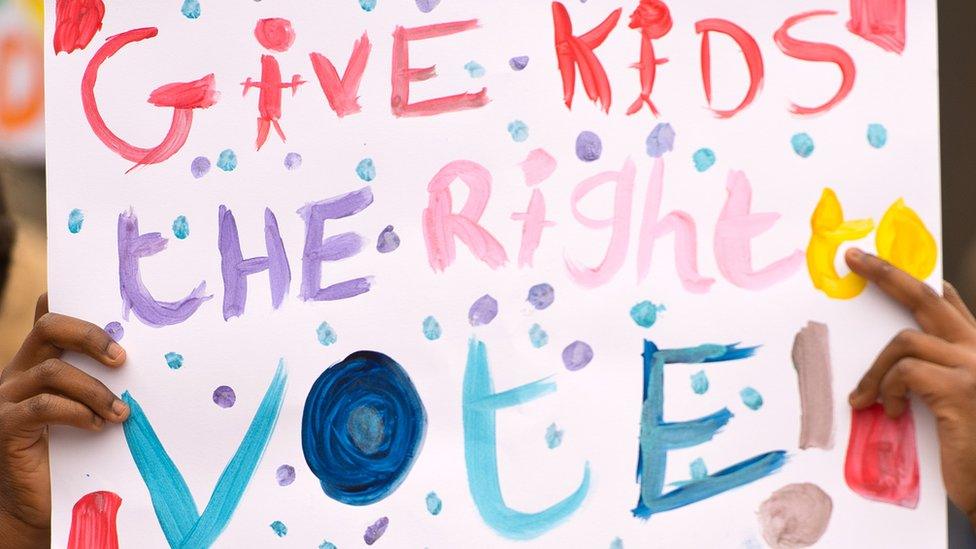
- Published5 September 2019
